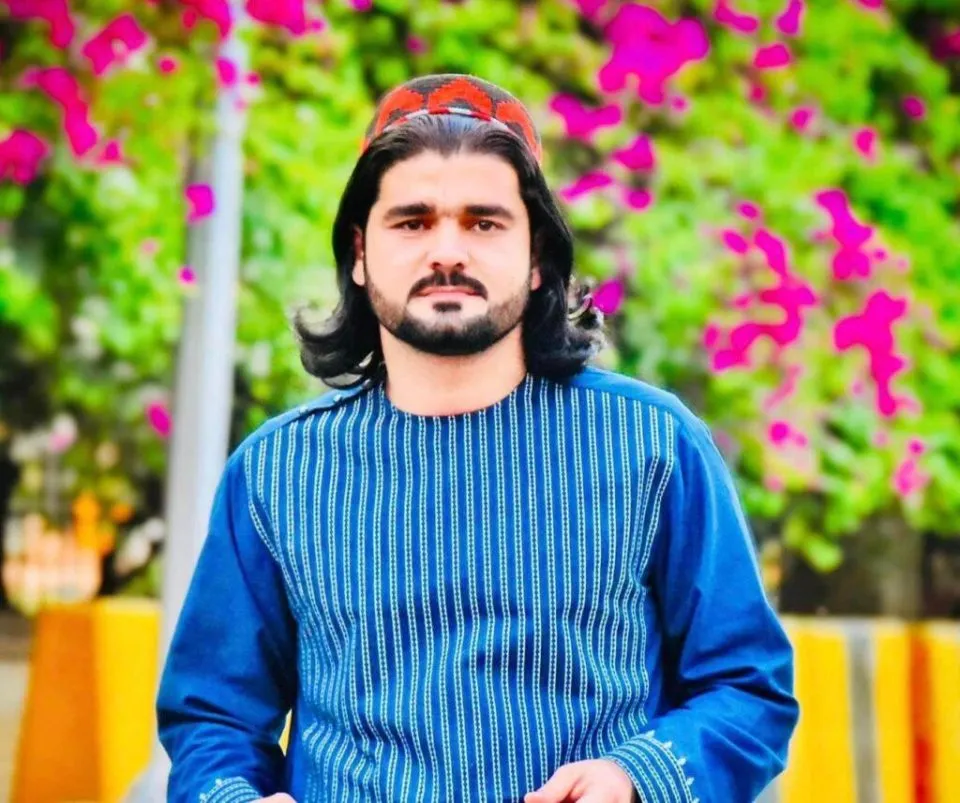COPENHAGEN: Attacks targeting other prominent Pashtun figures have resulted in tragic outcomes.
On July 7, 2024, renowned Pashto poet and human rights activist Gilaman Wazir was brutally attacked in Pakistan’s capital city by assaulters allegedly linked to the Pakistani security agencies. The attack, carried out by what the Pakistani establishment terms as “unknown gunmen,” left Gilaman Wazir with severe injuries, rendering him in critical condition and subsequently in a coma, from which never recovered and passed away.
Known for his advocacy for peace, against enforced disappearances, extrajudicial killings, and human rights abuses, particularly among the Pashtun community, Gilaman Wazir had recently been released after seven months of unlawful imprisonment by Pakistani authorities. His critical stance against state-sponsored terrorism and exposure of human rights abuses against Pashtuns have made him a target of harassment and violence.
The Pashtun Tahafuz Movement (PTM), based in Europe and representing Pashtuns worldwide, immediately launched a campaign urging the urgent airlifting of Gilaman Wazir to Germany for specialized medical treatment. Concerns over his safety and the adequacy of medical care in Pakistan were paramount. However, medical experts in Islamabad and abroad advised against moving him due to the precariousness of his condition.
While an FIR has been filed regarding the incident, PTM founder Manzoor Pashteen expressed frustration over the lack of arrests or visible efforts by Pakistani authorities to apprehend the perpetrators, believed to have ties to security agencies.
This assault on Gilaman Wazir is not an isolated incident but part of a pattern where Pakistani security and intelligence agencies allegedly employ such tactics to suppress dissenting voices and human rights activism. Similar attacks targeting other prominent Pashtun figures, including Senator Usman Kakar, Arif Wazir, and Arman Loni, have previously resulted in tragic outcomes, underscoring the dangers faced by activists in the region.
Former Afghan Presidents Ashraf Ghani and Hamid Karzai condemned the attack on Gilaman Wazir, showing international concern over human rights violations and terrorism in Pakistan, particularly against the Pashtun community.
Despite the gravity of the situation, there has been a notable lack of coverage from both Pakistani and international media outlets, drawing criticism from advocacy groups and observers who argue that such incidents should be widely reported to pressure for accountability and justice.
As Gilaman Wazir passed away, the silence from political leaders and responsible authorities within Pakistan and beyond has amplified
The attack on Gilaman Wazir and other activists serves as a stark reminder of the dangers confronting human rights advocates in Pakistan, where speaking out against state policies can lead to severe reprisals. Calls for justice and protection for activists resonate globally, urging transparency and accountability in addressing attacks on individuals like Gilaman and safeguarding human rights in the region.
Levsa Bayankhail, the General Secretary of the Pashtun Protection Movement in Denmark, is an advocate for human and women’s rights.

